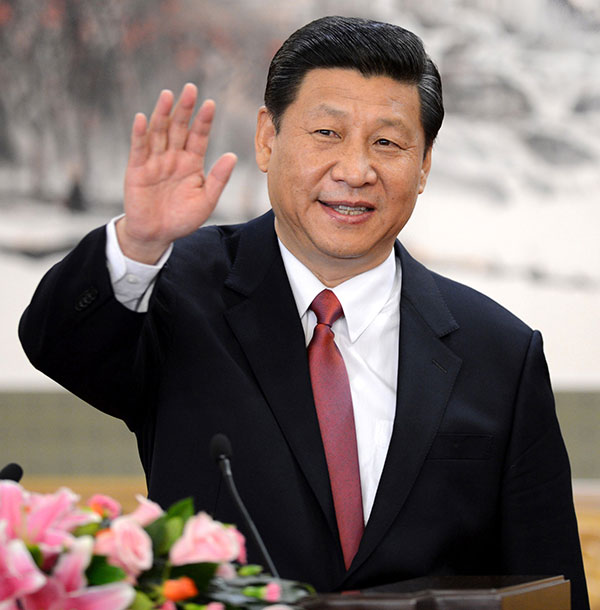

President Xi and his team have done a great job in areas where China's people had hoped to see progress
 |
|
Chinese president Xi Jinping. [Photo/Xinhua] |
It's almost human nature that, when trying to understand a different political system, people either generalize or overcomplicate it, or sometimes both.
So it is with the many questions circulating in the overseas media about Xi Jinping-general secretary of the Communist Party of China since 2012, and the country's president since 2013.
Is he a "Mao-type" leader, with wayward political goals that must be attained at whatever cost, including steady development of the world's second-largest economy?
Externally, is he ready, again at whatever cost, to assert the kind of supremacy comparable only to imperialist powers in the past?
And internally, is he, with his soaring ambition, beginning to distance himself from the rest of China's leadership, and perhaps more dangerous, leading to a replay of the kind of "power struggle" that plagued Chinese politics from the 1950s through to the '70s?
These are not just personality questions; they are China questions. Because they derive from suspicion over the country's future: If it shows no sign of following the apparently benign, if not docile, pattern of change seen elsewhere in East Asia, how can it set a different course for a peaceful rise?
Yet the Xi phenomenon is by no means a puzzle. His arrival was China's answer to the most pressing question it faced three years ago.
When Western nations, led by the US, were on a spending spree driven by unbridled credit, the country kept its annual GDP growth at around 10 percent, based on massive exports of cheap manufactured goods. Statistically, China then was doing much better than China now, as today GDP growth has fallen to barely 7 percent and its exports have been in negative growth for some months.
But if overseas China watchers can recall the conversations they had with Chinese friends back then, they would be able to tell you what their friends were most concerned about: corruption, or more specifically, official corruption and the massive business interests that had been built by bureaucrats and bureaucracies at various levels.
Problems remained
Despite the exciting economic figures three years ago, many social problems remained to be tackled. Some problems were spreading, compounded by anachronistic rules and bureaucratic callousness: A migrant worker would have to make dozens of trips back to his hometown just to get a passport; an investor would need to spend a lot of money and time collecting many official approvals to start a small business; some officials were buying and trading their positions in secret.
It was a time when people with any sense of political responsibility were aspiring for change. They wanted something to be done to prevent bad officials from stealing the fruits of China's 30-odd years of market-oriented reforms.
For political scientists, it amounted to a question of how to prevent a leadership from losing its legitimacy and alienating the people who initially built it. And it was high time to find an answer.
President Xi Jinping was the answer, and a straightforward one at that. He and his team have so far done a great job in the areas citizens had hoped to see progress three years ago.
In an unprecedented twist in modern China's history, many high-ranking officials and army generals, with their extensive networks of political allies and business partners, have recently come under criminal investigation for the misuse of public funds. And many have pleaded guilty to criminal offenses when confronted with a massive collection of evidence.
So there is no reason to brand the ongoing anti-graft campaign as a power struggle or disagreement in policy orientation.
Related Stories